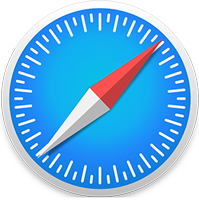Internet Explorer (IE), Microsoft’s well-known, standard internet browser has been synonymous with the term “web browser” since public use of the internet began. It became the default browser on every Window’s computer in the early 2000’s, and its PC usage was so widespread it commanded the vast majority of market share.
Today, PC internet browsers such as Chrome and Firefox, along with Safari for the Mac have taken over the market, pushing IE to the end of the line. Why? IE has been riddled with problems, including security issues, viruses and sluggish performance and therefore, its popularity has plunged.

IE’S OLDER VERSIONS ARE OBSOLETE
Viewer Hassles
Internet Explorer, most notably its older versions, display inconsistent data and do not render properly — meaning websites may not look as they’re designed and differently than other browsers.
Designer Hassles
In short, IE is a hassle for web-designers to work with. Generally, web browsers will read a website’s code and then translate how that code should visually display itself to you—not so with the Internet Explorer. This glitch creates extra time and hassles for web designers as they then have to add special coding– exclusively for IE users.
Security Hassles
What’s more, in 2016, Microsoft ceased supporting IE’s versions 7, 8, 9, and 10 which eliminated patches, security updates, and important features. So, using older versions makes a PC increasingly more vulnerable to viruses and malware.
Performance Hassles
In short, Internet Explorer, even the latest Version 11 is painfully slower than its competition. As a result, users will stop trying to visit a webpage if it takes more than a few seconds to load. This combined with poor website translation, virus vulnerabilities and loss of features, makes the IE browser a dinosaur.
THE NEW MICROSOFT EDGE AND OTHER BROWSERS
Even though Microsoft still supports its most recent IE Version 11, they encourage users to download their new browser: Microsoft Edge, which can be found on their customer support page. They claim that it offers “world-class performance with more privacy, more tools, more productivity, and more value while you browse.” Be aware, however, that Edge is not backward compatible with earlier versions of Windows. Other browser options include Firefox, Google Chrome, and Safari.



